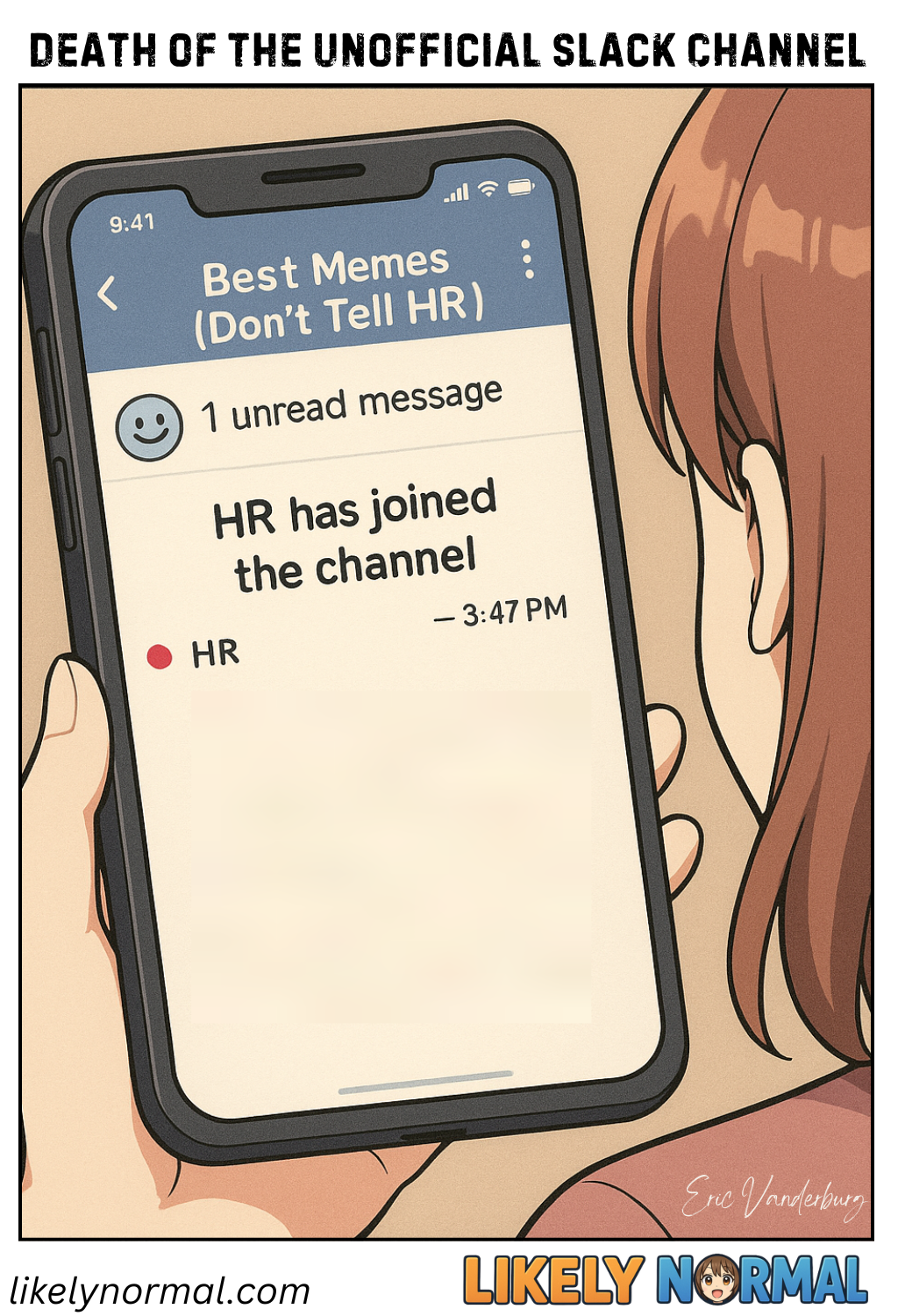Death of the Unofficial Slack Channel
Every company’s messaging platform has a shadow economy of channels where actual work goes to quietly expire while employees build elaborate civilizations of nonsense. These digital speakeasies operate under the thin veneer of professional communication while hosting everything from passionate debates about the proper way to load a dishwasher to full-blown investigations into who keeps stealing the good pens. The #random channel alone serves as a modern anthropological wonder – one minute it’s filled with adorable pet photos, the next it’s descended into heated philosophical debates about whether a hot dog qualifies as a sandwich, with HR nervously watching from the sidelines like parents monitoring a sleepover that’s getting out of hand.
The real magic happens in hyper-specific channels like #cursed-office-photos, where employees document the slowly decaying office plant that no one waters but everyone worries about, or #microwave-crimes, a support group for victims of exploded lunches and suspicious fridge smells. There’s always that one #tv-spoilers channel that somehow ruins every season finale two hours after it airs, despite half the members screaming “spoiler tags, people!” into the void. And let’s not forget #fake-productivity, where coworkers share their best “looking busy” techniques, from typing loudly to keeping a perpetually furrowed brow while staring at spreadsheets.
These channels aren’t just time-wasters – they’re the social glue holding the workplace together. That #bring-back-napping channel with its 300 members? It’s keeping morale afloat better than any corporate wellness program. The #subtle-flex thread where people pretend to complain about their third vacation this quarter? That’s modern art. And when someone drops an ominous “Wow. Just wow.” in #venting-but-cryptic, the ensuing speculation provides better team bonding than any forced icebreaker activity.
At their core, these groups represent the beautiful human instinct to create community wherever we’re planted – even if that community primarily exists to argue about whether the office Keurig is possessed by a demon. They’re proof that no matter how corporate the environment, people will always find ways to connect, commiserate, and occasionally plot how to liberate the good stapler from the locked supply closet. So the next time you get invited to #conspiracy-theories or #help-im-bored, remember: these aren’t distractions from work. They’re what make work bearable.

Discussion ¬